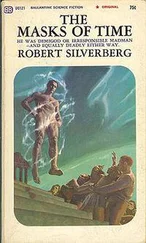Robert Silverberg - A Time of Changes
Здесь есть возможность читать онлайн «Robert Silverberg - A Time of Changes» весь текст электронной книги совершенно бесплатно (целиком полную версию без сокращений). В некоторых случаях можно слушать аудио, скачать через торрент в формате fb2 и присутствует краткое содержание. Год выпуска: 1971, Издательство: Doubleday, Жанр: Социально-психологическая фантастика, на английском языке. Описание произведения, (предисловие) а так же отзывы посетителей доступны на портале библиотеки ЛибКат.
- Название:A Time of Changes
- Автор:
- Издательство:Doubleday
- Жанр:
- Год:1971
- ISBN:нет данных
- Рейтинг книги:4 / 5. Голосов: 1
-
Избранное:Добавить в избранное
- Отзывы:
-
Ваша оценка:
- 80
- 1
- 2
- 3
- 4
- 5
A Time of Changes: краткое содержание, описание и аннотация
Предлагаем к чтению аннотацию, описание, краткое содержание или предисловие (зависит от того, что написал сам автор книги «A Time of Changes»). Если вы не нашли необходимую информацию о книге — напишите в комментариях, мы постараемся отыскать её.
A Time of Changes — читать онлайн бесплатно полную книгу (весь текст) целиком
Ниже представлен текст книги, разбитый по страницам. Система сохранения места последней прочитанной страницы, позволяет с удобством читать онлайн бесплатно книгу «A Time of Changes», без необходимости каждый раз заново искать на чём Вы остановились. Поставьте закладку, и сможете в любой момент перейти на страницу, на которой закончили чтение.
Интервал:
Закладка:
I was about three moontimes short of the age of thirteen when I took my leave of Salla. Among us that is the threshold of manhood; I had reached almost my present height, though I was much more slender and far less strong than I would soon become, and my beard had only lately begun to grow full. I knew something of history and government, something of the arts of warfare, something of the skills of hunting, and I had had some training in the practice of the law. Already I had bedded at least a dozen girls, and three times I had known, briefly, the tempests of unhappy love. I had kept the Covenant all my life; my soul was clean and I was at peace with our gods and with my forefathers. In my own eyes at that time I must have seemed hearty, adventurous, capable, honorable, and resilient, with all the world spread before me like a shining highway, and the future mine for the shaping. The perspective of thirty years tells me that that young man who left Salla then was also naive, gullible, romantic, over-earnest, and conventional and clumsy of mind: quite an ordinary youth, in fact, who might have been skinning seapups in some fishing village had he not had the great good fortune to be born a prince.
The season of my going was early autumn, after a springtime when all Salla had mourned my father and a summer when all Salla had hailed my brother. The harvest had been poor — nothing odd in Salla, where the fields yield pebbles and stones more graciously than they do crops — and Salla City was choked with bankrupt husbandmen, hoping to catch some largess from the new septarch. A dull hot haze hung over the capital day after day, and above it lay the first of autumn’s heavy clouds, floating in on schedule from the eastern sea. The streets were dusty; the trees had begun to drop their leaves early, even the majestic firethorns outside the septarch’s palace; the dung of the farmers’ beasts clogged the gutters. These were poor omens for Salla at the beginning of a septarch’s reign, and to me it seemed like a wise season for getting out. Even this early Stirron’s temper was fraying and unlucky councilors of state were going off to dungeons. I was still cherished at court, coddled and complimented, plied with fur cloaks and promises of baronies in the mountains, but for how long, how long? Just now Stirron was troubled with guilt that he had inherited the throne and I had nothing, and so he treated me softly, but let the dry summer give way to a bitter winter of famine and the scales might shift; envying me my freedom from responsibility, he might well turn on me. I had studied the annals of royal houses well. Such things had happened before.
Therefore I readied myself for a hasty exit. Only Noim and Halum knew of my plans. I gathered those few of my possessions that I had no wish to abandon, such things as a ring of ceremony bequeathed by my father, a favorite hunting jerkin of yellow leather, and a double-cameo amulet bearing the portraits of my bondsister and bondbrother; all my books I relinquished, for one can get more books wherever one goes, and I did not even take the hornfowl spear, my trophy of my father’s death-day, that hung in my palace bedchamber. There was to my name a fairly large amount of money, and this I handled in what I believed was a shrewd manner. It was all on deposit in the Royal Salla Bank. First I transferred the bulk of my funds to the six lesser provincial banks, over the course of many days. These new accounts were held jointly with Halum and Noim. Halum then proceeded to make withdrawals, asking that the money be paid into the Commercial and Seafarers Bank of Manneran, for the account of her father Segvord Helalam. If we were detected in this transfer, Halum was to declare that her father had undergone financial reverses and had requested a loan of short duration. Once my assets were safely on deposit in Manneran, Halum asked her father to transfer the money again, this time to an account in my name in the Covenant Bank of Glin. In this zigzag way I got my cash from Salla to Glin without arousing the suspicions of our Treasury officials, who might wonder why a prince of the realm was shipping his patrimony to our rival province of the north. The fatal flaw in all this was that if the Treasury became disturbed about the flow of capital to Manneran, questioned Halum, and then made inquiries of her father, the truth would emerge that Segvord prospered and had had no need of the “loan,” which would have led to further questions and, probably, to my exposure. But my maneuvers went unnoticed.
Lastly I went before my brother to ask his permission to leave the capital, as courtly etiquette required.
This was a tense affair, for honor would not let me lie to Stirron, yet I dared not tell him the truth. Long hours I spent with Noim, first, rehearsing my deceptions. I was a slow pupil in chicanery; Noim spat, he cursed, he wept, he slapped his hands together, as time and again he slipped through my guard with a probing question. “You were not meant to be a liar,” he told me in despair.
“No,” I agreed, “this one never was meant to be a liar.”
Stirron received me in the northern robing chamber, a dark and somber room of rough stone walls and narrow windows, used mainly for audiences with village chieftains. He meant no offense by it, I think; it was merely where he happened to be when I sent in my equerry with word that I wished a meeting. It was late afternoon; a thin greasy rain was falling outside; in some far tower of the palace a carillonneur was instructing apprentices, and leaden bell-tones, scandalously awry, came humming through the drafty walls. Stirron was formally dressed: a bulky gray robe of stormshield furs, tight red woolen leggings, high boots of green leather. The sword of the Covenant was at his side, the heavy glittering pendant of office pressed against his breast, rings of title cluttered his fingers, and if memory does not deceive me, he wore yet another token of power around his right forearm. Only the crown itself was missing from his regalia. I had seen Stirron garbed this way often enough of late, at ceremonies and meetings of state, but to find him so enveloped in insignia on an ordinary afternoon struck me as almost comical. Was he so insecure that he needed to load himself with such stuff constantly, to reassure himself that he was indeed septarch? Did he feel that he had to impress his younger brother? Or did he, childlike, take pleasure in these ornaments for pleasure’s own sake? No matter which, some flaw in Stirron’s character was revealed, some inner foolishness. It astounded me that I could find him amusing rather than awesome. Perhaps the genesis of my ultimate rebellion lies in that moment when I walked in on Stirron in all his splendor and had to fight to hold my laughter back.
Half a year in the septarchy had left its mark on him. His face was gray and his left eyelid drooped, I suppose from exhaustion. He held his lips tightly compressed and stood in a rigid way with one shoulder higher than the other. Though only two years separated us in age, I felt myself a boy beside him, and marveled how the cares of office can etch a young man’s visage. It seemed centuries since Stirron and I had laughed together in our bedchambers, and whispered all the forbidden words, and bared our ripening bodies to one another to make the edgy comparisons of adolescence. Now I offered formal obeisance to my weary royal brother, crossing my arms over my breast and flexing my knees and bowing my head as I murmured, “Lord Septarch, long life be yours.”
Stirron was man enough to deflect my formality with a brotherly grin. He gave me a proper acknowledgment of my greeting, yes, arms raised and palms turned out, but then he turned it into an embrace, swiftly crossing the room and seizing me. Yet there was something artificial about his gesture, as though he had been studying how to show warmth to his brother, and quickly I was released. He wandered away from me, eyeing a nearby window, and his first words to me were, “A beastly day. A brutal year.”
Читать дальшеИнтервал:
Закладка:
Похожие книги на «A Time of Changes»
Представляем Вашему вниманию похожие книги на «A Time of Changes» списком для выбора. Мы отобрали схожую по названию и смыслу литературу в надежде предоставить читателям больше вариантов отыскать новые, интересные, ещё непрочитанные произведения.
Обсуждение, отзывы о книге «A Time of Changes» и просто собственные мнения читателей. Оставьте ваши комментарии, напишите, что Вы думаете о произведении, его смысле или главных героях. Укажите что конкретно понравилось, а что нет, и почему Вы так считаете.












